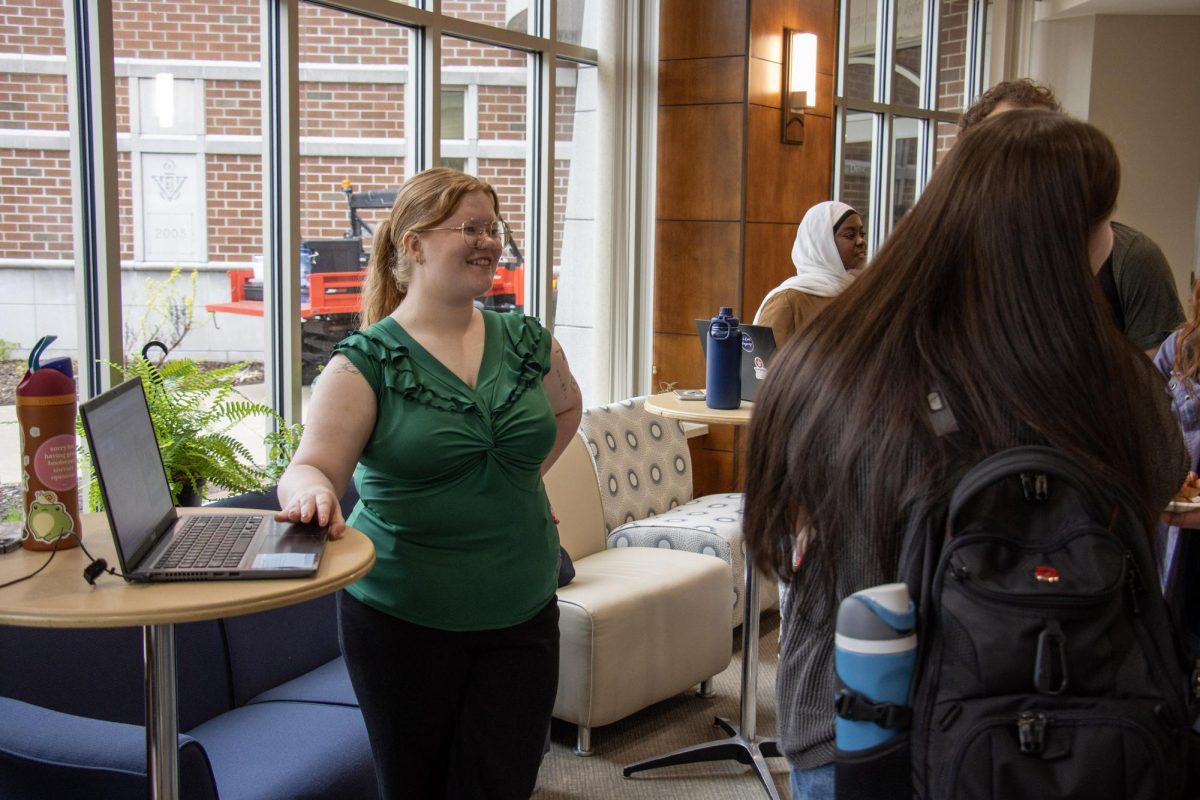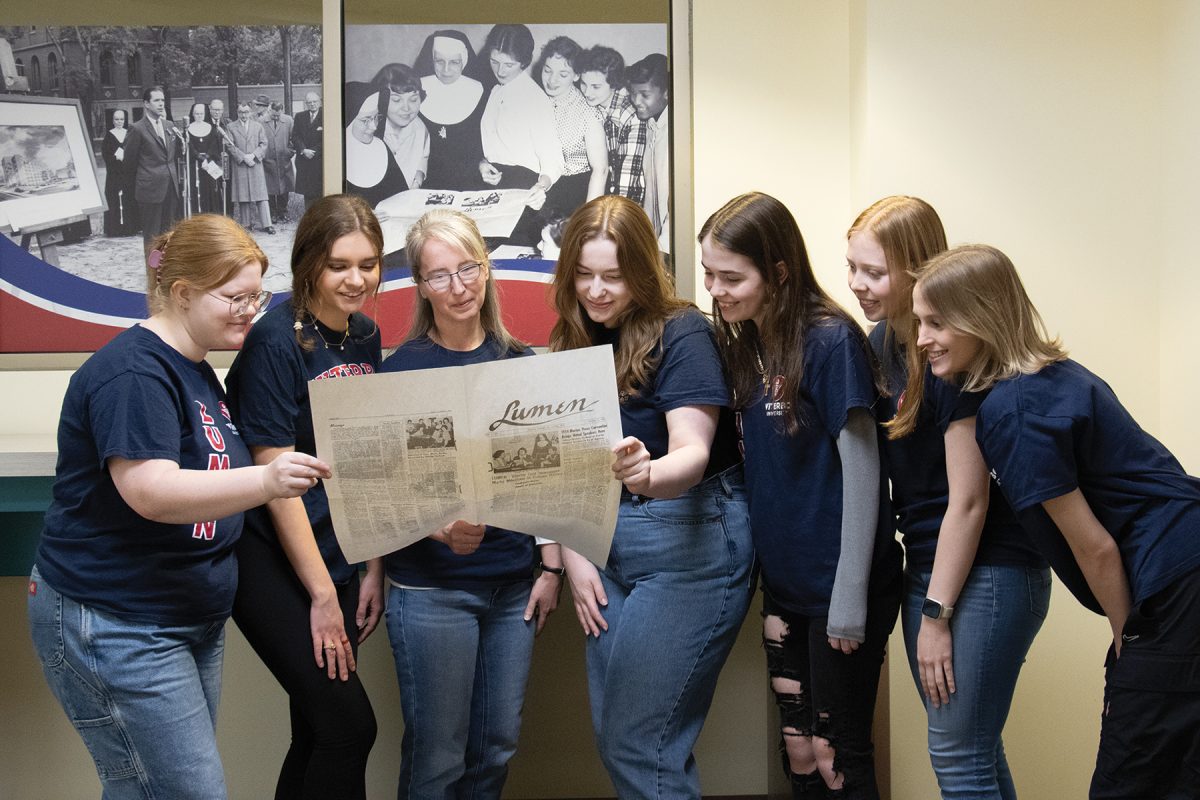How a culture that prioritizes today wastes tomorrow
May 2, 2022
If we were all sitting in the room together today and I were to conduct a poll, I think it would be safe to assume that in the past week we have all dumped at least one plate of food into the Viterbo cafeteria’s garbage cans. This week I’ve seen many advertisements for Noom, a new app that uses psychology to approach the way we eat and help people lose weight. In the ad, we see a man repeatedly cleaning his plate, telling waiters he’s “got a few bites left.” The thing that helps this man on his weight loss journey is recognizing that he has been conditioned since childhood to finish everything on his plate. Funny, I thought, because I was raised that way too.
It’s a very privileged value to have, being pressured to finish whatever you put on your plate. It assumes you might have too much food available to you. According to WorldVision.org, about 9 percent of the world’s population goes to bed on an empty stomach each night. And yet, even after I find myself frustrated because there’s nothing able to satisfy me at the cafeteria, I can go back to my apartment to a plethora of options for a meal.
As I’m writing this, I look up because the sink is running and has been for the past several minutes. My roommate is washing his dishes. Later I’ll take a shower and probably give the water a couple of minutes to run and get warm, and then I may shower for ten or fifteen minutes. And I’ll shower again in the morning, because it’s the only way I get to class at 8 a.m. If I’m not hit in the face with enough water to fill a small swimming pool, I may never show my face in that dance class. But lifewater.org can list ten different countries where access to clean drinking water is not a given. In places like Ethiopia and Papua New Guinea, over half the country lacks access to clean drinking water.
I could go more in depth about a lot of issues of waste we see every day around us. How I often leave all of the lights and fans in my apartment running all day, or how I buy a new pair of shoes weekly, or fill up my garbage like it’s a competition to see how many times a week I have to take a trip to the dumpster. Multiply that personal burden on the environment by, let’s just say 2,600 or so Viterbo students, and I almost start to understand why it costs so much to live on campus. I’m sure the water, electricity and waste outputs are astronomical for on-campus buildings. And while it’s easy to just sit here and feel vaguely depressed due to all this, the question arises: How did we get here? How did we begin to be so caught up in the need to consume that we forgot how to value the world around us and preserve it for tomorrow? And how do we reverse the process?
I often come to this question when considering big issues like climate change, and I find myself frustrated when we point our fingers at big corporations. Not that I don’t blame them for the significant increase in carbon emissions or the immense amount of waste produced, or the pollution of our waterways, but it’s so easy to let ourselves off the hook when it’s only giant corporations that are to blame. Because sure, taking a smaller serving at the caf isn’t going to change the amount of food produced and wasted by Viterbo overnight, and not running my shower for that extra ten minutes isn’t going to singlehandedly provide water to Ethiopia, but maybe issues like waste and climate change aren’t really about what I want at the end of the day. Perhaps they’re about learning to think about us all. Maybe instead of asking why I would bother turning the water off while brushing my teeth, the question should be: How can the choices I make today help create a better and more sustainable world for tomorrow? And maybe, if we all make those small choices, day by day, together, we can put less in the landfills, or sustain good drinking water on this planet for a few more years. A little thought about tomorrow could help us make better choices today.


